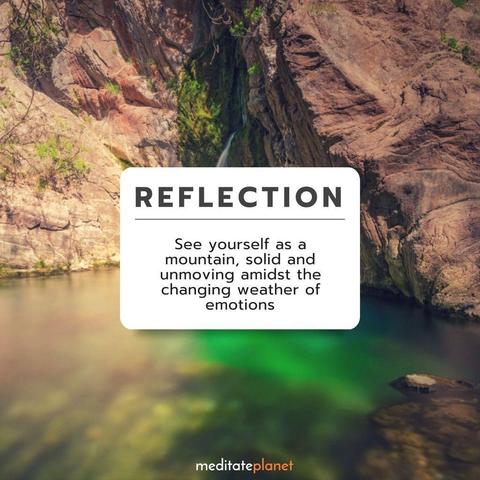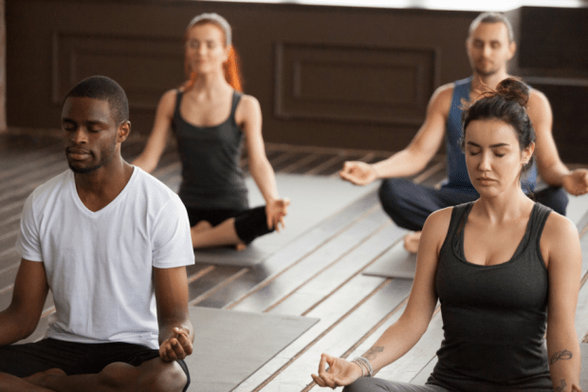Is celibacy the ticket to a productive, uncluttered mind? Learn how celibacy impacts emotions, performance, and inner strength.
https://youtu.be/Zmcvz49NDdA
#productivitytips #clearmind #celibacypower #emotionalstability #successguide
#EmotionalStability
True work-life balance. It’s a deeply personal journey, shaped by different lifestyles, circumstances, and emotions. But if there’s one thing I’ve learned, it’s that small, intentional changes can make a real difference. #worklife #emotionalstability #self-reflection #affiliatemarketing #amazon
https://jiteshbalakrishnan.blog/2025/05/18/balance-better-build-a-stable-and-fulfilling-home/
See yourself as a mountain, solid and unmoving amidst the changing weather of emotions.
⛰️🌦️🧘♀️
Waiting is one of the most difficult things to do especially if waiting for a decision or an expected outcome, and sometimes for a good reason. But as humans, we have the tendency to go overboard with anxiety that can put us in hyper-excitable states and become distracting.
When waiting turns into worrying, then there’s a need to actively work on your mind to relieve the anxiety and maintain an optimistic outlook on life. This is because life is not going to stop happening just because you’ve slipped into a pervasive and distracting state of worry over things that are completely out of your control.
As someone who is fresh off my exams and awaiting results while having to address other important aspects of daily life, I’m frequently haunted by thoughts of “what ifs” and can’t seem to forget those questions I probably didn’t get right. I am actively working on my mind everyday because it is very important for my future self to maintain the ability to make sound decisions even when there are grey areas or uncertainties.
This article is inspired by my journey of mastering the process of waiting and navigating uncertainties while keeping positive. It is going to be something old, something new, and something borrowed.
I’ll start by outlining the things that I have noticed to happen when waiting with worry or anxious thoughts:
•Slowed thought processing
•Forgetfulness
•Poor decision making
•High distractability
•Edginess
•Poor problem solving ability
•Disorganization
•Over Sharing
These are just a few of the things that can happen when we allow anxiety and fear to dominate any waiting period in our lives. Of course there are quite some popular quotes on worrying, and an all time popular one sung as “…que sera sera”. Indeed, what will be is going to be. My personal favorite is the one that asks, “if something can be done about it, why worry? If nothing can be done about it, why worry?”!
But waiting with the right attitude and gutting anxious and fearful thoughts is not as easy as we sometimes imagine it to be. While I’m deeply aware of how difficult it can be to manage worrying thoughts sometimes, I still sometimes find myself expecting people to be able to immediately shed their worrisome thoughts just because I said so as I have also experienced people often expecting me to shed my worrisome thoughts just because they said so. Worry never goes away just because we want it to go away.
Here are a few things that I have learned to implement in the course of managing the waiting process effectively:
• THOUGHT DISCIPLINE: It is easy to believe that we are subject to our thoughts and are somehow helpless about when they pop up and how we handle them, but I have found that this is often not the case. That feeling of helplessness that accompanies worrying thoughts is a form of thought indiscipline, though a subconscious habit. It is in fact true that when you recognize yourself holding distressing thoughts, you can just stop thinking about it. No, this is not thought-blocking, rather it is acknowledging the presence of a particular quality to your thoughts and not lending it the emotional component that gives it the power to bloom into full anxiety and put you in overdrive.
•EMOTIONAL DISCIPLINE: And talking of putting reins on our emotions, it can be very tasking to achieve this. The reason is because emotion exists on a spectrum and anxiety can often find other ways to interfere with your life. Anxiety can quickly become anger, extreme joy, talkativeness(cue over sharing), overeating, and all sorts of lability. Being unable to identify the source emotion that is sliding up and down the spectrum can be hard to curb. For me, I often take away every single reason that I think I have to act out using cognitive strengths. There’s absolutely a time and place for everything even though modern life touts endless possibilities and no boundaries. When your emotional strength is challenged, it is absolutely okay to switch into full on logic till your emotional strength is restored. And talking of logic…
•METACOGNITIVE STRENGTH: I first became aware of this word about 8yrs ago, and I have not stopped researching it. In simple terms, metacognition just refers to your ability to recognize how you think. The ability to look at yourself from different angles and understand your tendencies under different circumstances is a top tier skill. Other terms for metacognition are self-mastery and the likes of it, the components of which includes self-awareness, situational awareness, insightfulness, well trained instinct, and mindfulness. The one foolproof thing that sparks consciousness has always been meditation amongst many others. When anxious thoughts arise, employ literal stillness. Stillness takes away the haziness and the brain fog that comes with anxious thoughts.
Before I bring this article to conclusion, I want to add that worry on its own is an essential signal that is designed to help us tread carefully or pay closer attention to an element that we may be taking for granted. It’s important to mention this because we live in the age of happiness addiction, and we’re bombarded with information that implies that worry is something that should completely be done away with. In reality, worry is protective when it occurs in the right amount. Unchecked, it becomes a problem in many ways.
I hope that you find these tips helpful. There’s no one size fits all solution for these things, and nobody knows how best to handle it better than anyone else because we’re all unique in personality and circumstances, but we can always tap into the collective knowledge of others and borrow something.
If you find this read enjoyable, give us a like and follow to read more of articles like this and be sure to share it with your friends and loved ones.
#calm #EmotionalStability #meta #metacognition #personalGrowth #resilience #stability #Stillness #ThoughtDiscipline #watchfulwaiting
Meditation: A Natural Way to Decrease Stress Levels
Table of Contents
Toggle
- Introduction to Meditation
- Understanding the Concept of Meditation
- The History and Origins
- Benefits of Meditation
- Enhancing Mental Wellness and Easing Stress
- Physical and Psychological Benefits
- Mindfulness Meditation Techniques
- Different Types of Meditation Practices
- Guided Meditation
- Transcendental Meditation
- Loving-Kindness Meditation
- How to Start Meditating
- Advanced Meditation Practices
- Conclusion
- How long should I meditate each day to experience benefits?
- Can anyone meditate, regardless of their religious or spiritual beliefs?
- What should I do if I keep getting distracted during meditation?
- The wonders of lava rocks for physical and spiritual health
Introduction to Meditation
Meditation is a practice that has been utilized for thousands of years across various cultures and traditions. As a means of achieving mental clarity, emotional stability, and spiritual growth. One of the key principles behind meditation is the ability to focus and quiet the mind in order to reach a state of mindfulness. Because through mindfulness exercise, individuals are able to cultivate a sense of awareness of the present moment. Allowing them to better understand their thoughts, emotions, and reactions. This article offers valuable insights and practical tips to help you incorporate meditation into your daily life.
Understanding the Concept of Meditation
The History and Origins
Mindfulness exercise: the art of finding your Zen while sitting cross-legged or possibly lying down if that’s your thing. It’s like a mini vacation for your mind, giving you a break from the chaos of daily life. At its core, meditation is about quieting the mind and focusing on the present moment. It’s not about emptying your thoughts completely (good luck with that!), but rather observing them without judgment. However, mindfulness exercise isn’t just a trendy wellness practice; it has deep roots in ancient traditions. From Buddhist monks to yogis in India, people have been finding inner peace through meditation for centuries.
Benefits of Meditation
Enhancing Mental Wellness and Easing Stress
Research indicates that it has significant benefits for our physical and mental well-being. Also, studies have shown that meditation can enhance immune function, reduce inflammation, and prevent chronic illnesses by promoting relaxation and reducing stress. So, if stress feels like a heavy burden, consider incorporating Breathing Exercises for Stress Reduction into your routine. For a peaceful escape from the chaos of everyday life, Visualization Techniques for Relaxation can provide a much-needed break. In short if anxiety and depression are taking a toll on your mental health, meditation can serve as a powerful tool to manage and alleviate these challenges. For improved focus and mental clarity, Meditation for Focus and Clarity can sharpen your cognitive abilities. In addition to its mental and emotional benefits, mindfulness exercises can also have a positive impact on physical health.
Physical and Psychological Benefits
Experience relief from stress-induced tension headaches and improve your overall well-being with the practice of meditation. Through mindfulness and focusing on the present moment, individuals can effectively manage and reduce stress and anxiety, leading to better sleep and lower blood pressure. Studies have demonstrated that regular meditation can decrease levels of cortisol, the stress hormone, resulting in improved physical health and mental well-being.
Mindfulness Meditation Techniques
Looking to get your zen on? Body Scan Meditation is like a full-body massage for your mind, helping you tune in to each part of your body. And if sitting still isn’t your thing, try Walking Meditation – it’s like strolling with a side of serenity. Moreover, meditation can also foster a sense of compassion and empathy towards oneself and others. Because by cultivating a sense of mindfulness and self-awareness, individuals are better able to understand their own motivations, desires, and fears. This increased self-awareness can lead to greater empathy towards others, as individuals become more attuned to the thoughts and feelings of those around them.
Furthermore, meditation has been found to enhance concentration and cognitive function. By training the mind to focus on a single point or object, individuals can improve their ability to concentrate on tasks and activities. This can be particularly beneficial for individuals who struggle with distractions or have difficulty staying focused for extended periods of time.
Different Types of Meditation Practices
Meditation isn’t a one-size-fits-all deal. There are different flavors to suit your preferences.
Guided Meditation
Let someone else do the heavy lifting with guided meditation sessions. All you have to do is close your eyes, listen, and relax.
Transcendental Meditation
Feeling fancy? Transcendental meditation involves repeating a specific mantra to reach a higher state of consciousness. It’s like yoga for your mind.
Loving-Kindness Meditation
Spread some good vibes with loving-kindness meditation. This practice focuses on cultivating feelings of compassion and kindness towards yourself and others. Hug optional.
How to Start Meditating
If you’re ready to dive into the world of meditation, there’s no need to feel overwhelmed. To start, find a quiet and comfortable space where you won’t be interrupted. Begin by focusing on your breath, allowing it to come in and out naturally without forcing it. Firstly, start with just a few minutes each day, and gradually increase the time as you become more comfortable with the practice. Don’t worry if your mind wanders – simply acknowledge the thoughts and gently guide your focus back to your breath. Remember that meditation is a journey, not a destination, so be patient with yourself and allow yourself to grow at your own pace. With dedication and practice, you’ll soon find yourself reaping the many benefits of this ancient practice.
Advanced Meditation Practices
Are you prepared to enhance your mindfulness exercise routine? By fully dedicating yourself to delving deeper into your meditation practice, you have the opportunity to explore advanced techniques. Allocate more focused time and nurture a heightened sense of mindfulness and inner tranquility. This advanced level of practice empowers you to access a wellspring of inner wisdom and establish a profound connection with your authentic self. Elevating your practice to this next level not only enables you to achieve these aspirations but also opens the door to even greater personal growth and fulfillment. The only limit is your determination and dedication – so go ahead, sprinkle a little extra magic onto your daily routine and watch as it transforms your life for the better.
Conclusion
Meditation is a powerful tool that anyone can use to cultivate a sense of inner calm and balance amidst the chaos of modern life. By incorporating mindfulness exercise into your daily routine, you can experience a range of benefits, from reduced stress and improved mental clarity to a greater sense of peace and well-being. Whether you choose to practice mindfulness meditation, loving-kindness meditation, or another technique that resonates with you, the key is to commit to regular practice and approach it with an open mind and heart. Embrace the transformative power of meditation and embark on a journey towards a more mindful and fulfilling life.
How long should I meditate each day to experience benefits?
Can anyone meditate, regardless of their religious or spiritual beliefs?
What should I do if I keep getting distracted during meditation?
The wonders of lava rocks for physical and spiritual health
#benefits #body #challenges #compassion #consciousness #dailyLife #DailyRoutine #depression #desire #emotionalStability #Empathy #fears #feelings #help #individuals #meditation #mentalClarity #mentalHealth #mentalWellness #mindfulnessExercises #mined #motivation #People #personalGrowth #physicalHealth #practice #preferences #reducingStress #relaxation #stressLevels #Understanding #vibes #WellBeing #wellnessPractice #yoga
Don't Let a Bad Call by the Umpire Affect Your Confidence at the Plate. #BaseballMindset #StayFocused #KeepSwinging #MentalToughness #UnshakableConfidence #GameTimeMindset #PlatePresence #EmotionalStability #OwnTheBatterBox
Mastering investments: Wisdom over panic
Scott Kyle and Patrick Fischer are authors of The Compound Code: An Expert Guide to Trading Stocks & Options.
https://youtube.com/shorts/dT7RBGW6U6A?feature=share
Listen here: https://kevinmd.com/podcast
#InvestmentWisdom #StayTheCourse #FinancialResilience #LongTermInvesting #EmotionalStability #FinancialDecisions #MarketVolatility #InvestmentMistakes #StockMarketHistory #MindfulInvesting
Discover the importance of emotional health and learn effective strategies for maintaining it. Read our article to find out more!
https://eatfitlivewell.com/healthy-living/mental-health/emotional-health/
#EmotionalWellness #EmotionalHealth #EmotionalBalance #EmotionalWellbeing #EmotionalHealing #EmotionalResilience #EmotionalIntelligence #EmotionalFitness #EmotionalAwareness #EmotionalStrength #EmotionalGrowth #EmotionalEmpowerment #EmotionalSupport #EmotionalSelfCare #EmotionalStability #EmotionalWellnessJourney #EmotionalHealthMatters



